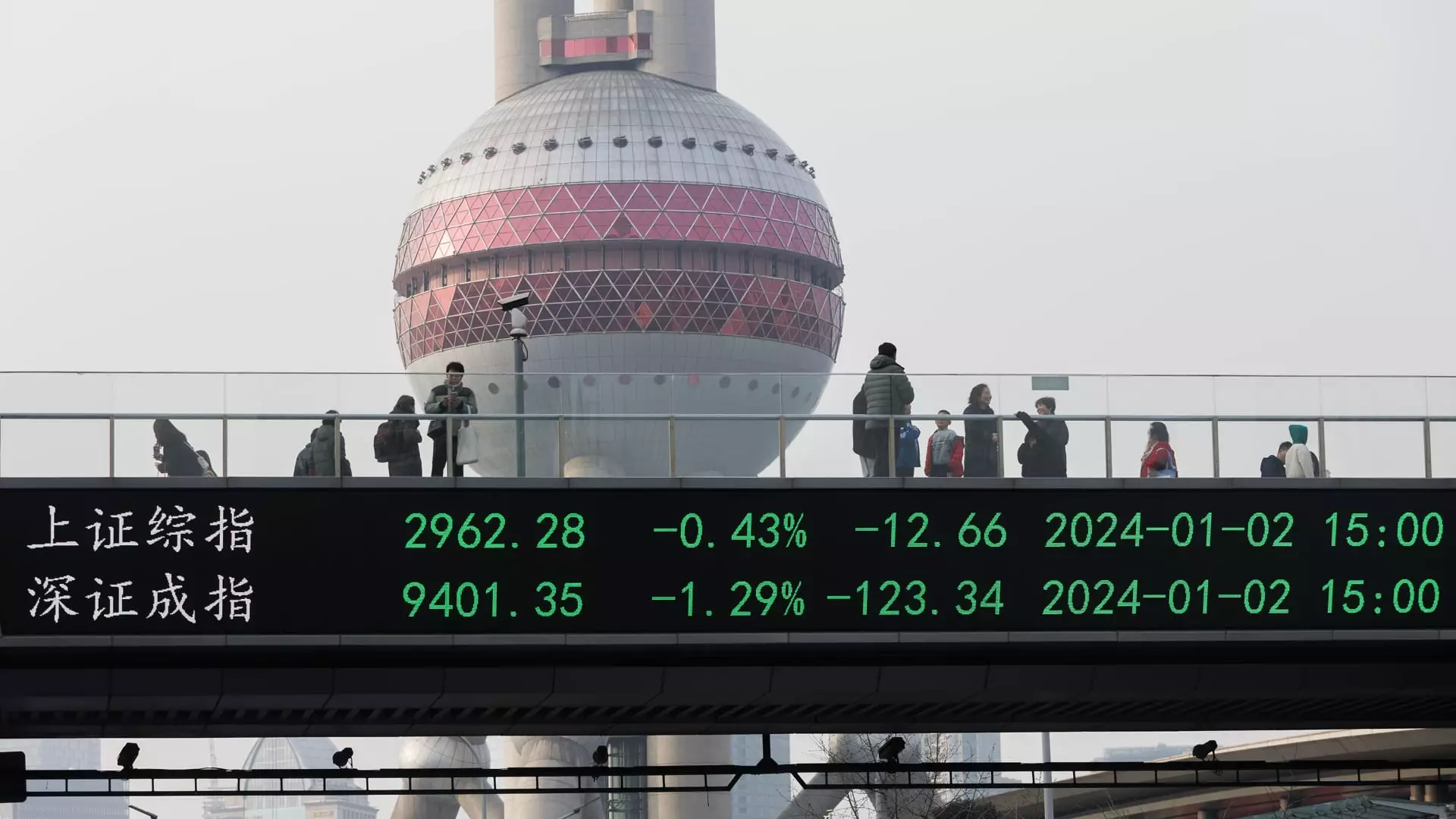In a striking display of resilience, exchange-traded funds (ETFs) focused on Chinese stocks experienced significant gains on Wednesday, despite the fact that mainland markets were closed for a week-long holiday. Notable ETFs such as the KraneShares CSI China Internet ETF (KWEB), iShares China Large-Cap ETF (FXI), iShares MSCI China ETF (MCHI), and the Invesco Golden Dragon China ETF (PGJ) rose by at least 5% in morning trading sessions. This upward trajectory marks a compelling fifth consecutive day of gains for both KWEB and PGJ. The primary reason behind this unusual activity lies in the fact that these funds invest predominantly in companies listed on the Hong Kong Stock Exchange or those that are based in China but traded on U.S. exchanges. As the mainland markets, including the Shanghai and Shenzhen stock exchanges, remained inactive until October 8, the movement of these ETFs signifies a possible disconnect between domestic and international investor sentiments.
Recently, the atmospherics surrounding Chinese equities shifted dramatically following a wave of stimulus measures rolled out by the Chinese government in response to a deep economic downturn. These measures, which include interest rate cuts and decreased reserve requirements for banks, aimed to stimulate economic activity and restore confidence in the markets. Scott Rubner, a tactical specialist at Goldman Sachs, expressed his bullish outlook in a recent note, stating, “This time is different,” emphasizing an unprecedented level of daily demand for Chinese equities. Rubner’s observation raises questions about the stability of this newfound enthusiasm, as aligning with benchmark index weights typically reflects more sustained investment confidence.
Government intervention has played a pivotal role in reviving investor interest in Chinese stocks, which had faced a myriad of challenges, including a sluggish economy and regulatory rollbacks in the past few years. The stimulus measures have instilled a sense of optimism within a market that has been battered, suggesting that confidence among both retail and institutional investors is starting to rebound. Prominent figures in the investment world, like David Tepper of Appaloosa Management, have signaled a willingness to aggressively invest in China, stating that he is buying “everything” linked to the region due to robust government support.
Certain stocks have emerged as frontrunners in this upward movement. For instance, JD.com saw a 5% increase in its share price on Wednesday, enjoying a fifth consecutive day of gains. Similarly, another e-commerce powerhouse, PDD, experienced a 4.8% rise after an impressive 8% jump the prior day. The performance of these companies not only highlights the optimistic market sentiment but also underscores the vital role of e-commerce in the broader Chinese economy.
The recent rally in Chinese-related ETFs abroad offers a potent reminder of the market’s resilience and the potential for recovery, even amidst prevailing uncertainties. The introduction of government-backed stimulus measures has appeared to uplift investor confidence, yet it remains vital to monitor how these dynamics evolve once the mainland markets reopen and whether the bullish trends can persist beyond short-term surges. In this context, while the optimism surrounding Chinese equities appears justified, a cautious approach towards long-term investment in this ever-evolving market landscape is advisable.


Leave a Reply